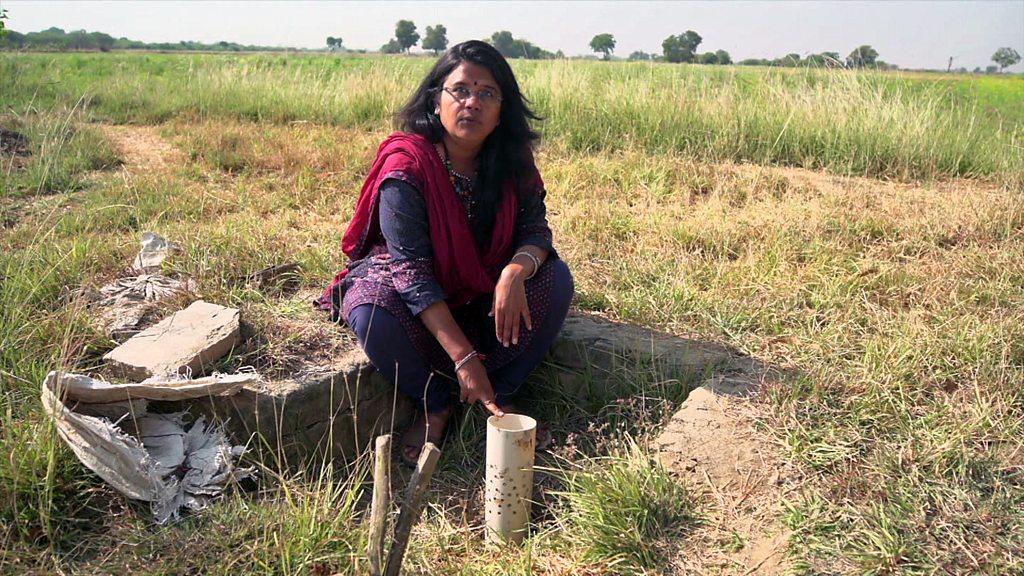India farmers: Tens of thousands march against agrarian crisis
- Published
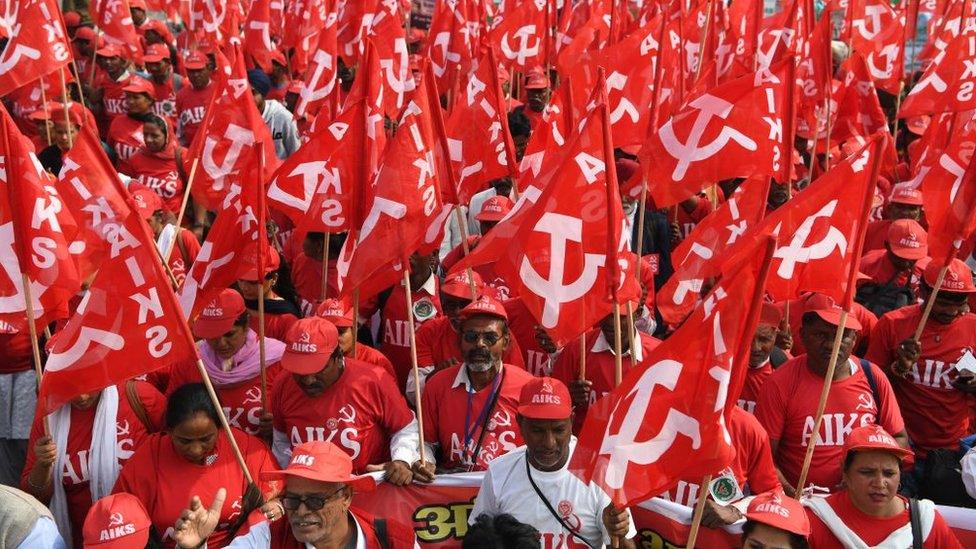
The farmers are marching to highlight the agrarian crisis
Tens of thousands of Indian farmers have marched to the parliament in the capital, Delhi, to highlight the deepening agrarian crisis.
They arrived on Thursday from across the country and held a rally demanding better crop prices, drought relief and loan waivers.
Indian agriculture has been blighted by a depleting water table and declining productivity for decades.
This is the fourth such farmers' protest in the past year.
Farmers make up important voting bloc in the country and, analysts say, given the scale of the protests, their discontentment could hurt the ruling Bharatiya Janata Party (BJP) in next year's general election.
"We voted for the BJP but anti-farmer policies of the government have hit us hard," Lakhan Pal Singh, one of the farmers participating in the march, told Reuters news agency.
One of their chief demands is a special parliamentary session to discuss solutions to the agrarian crisis, including a full loan waiver and higher crop prices.
Half of India's population works on farms, but farming contributes only 15% to the country's GDP.
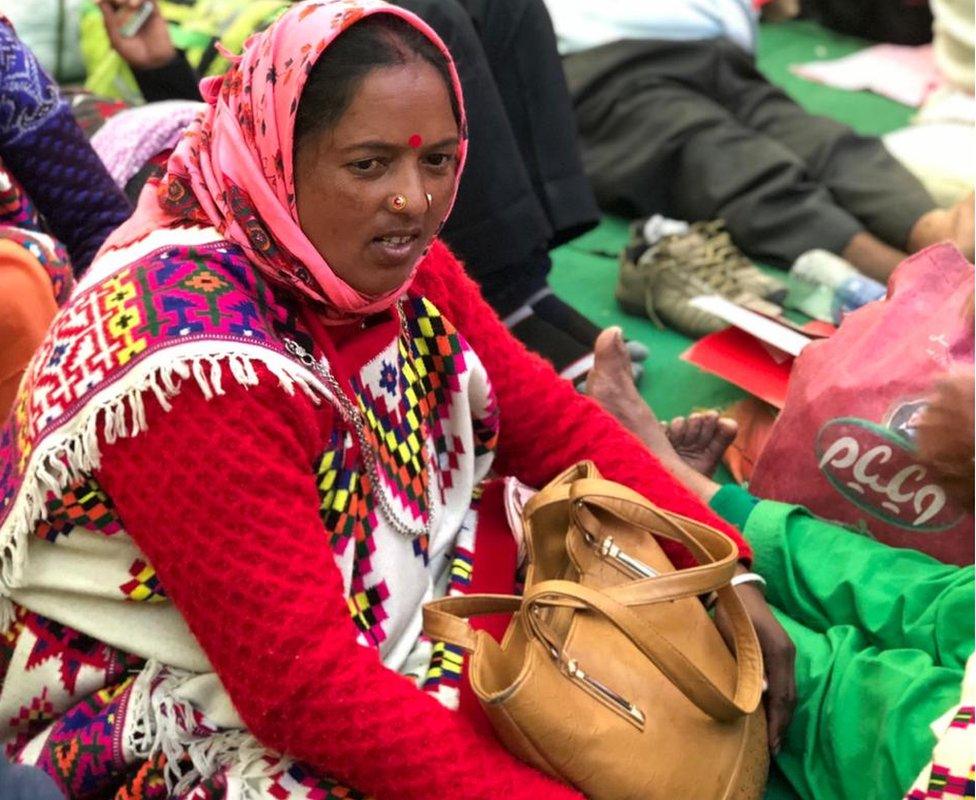
The farmers, including women, have come from different parts of India
In most states, governments have been less than swift in paying the farmers more for their crops - the federal government sets the price for produce and procures crops from farmers to incentivise production and ensure income support.
Indian farmers also struggle with debt owed to banks and money lenders. And crop failures trigger farm suicides with alarming frequency. At least 300,000 farmers have killed themselves since 1995.
Daughters, wives and other family members of farmers who took their own lives over crop failure or mounting debt are also participating in the protest - with some of them carrying photographs of their loved ones.

Read more about India's farming crisis

The march has been organised by an umbrella group of farmers' organisations from different parts of the country. Many of the protesters are also members of the farmers' wing of the Communist Party of India (Marxist).
They have been arriving in Delhi since Thursday night. They gathered at a huge public ground that is often used for political rallies and spent the night in tents there. They started matching towards the parliament on Friday morning even as thousands of policemen were deployed for security.
Sangita Bhoir, a woman farmer from the western state of Maharashtra, had protested in Mumbai city a few months ago. Now, she is in Delhi.
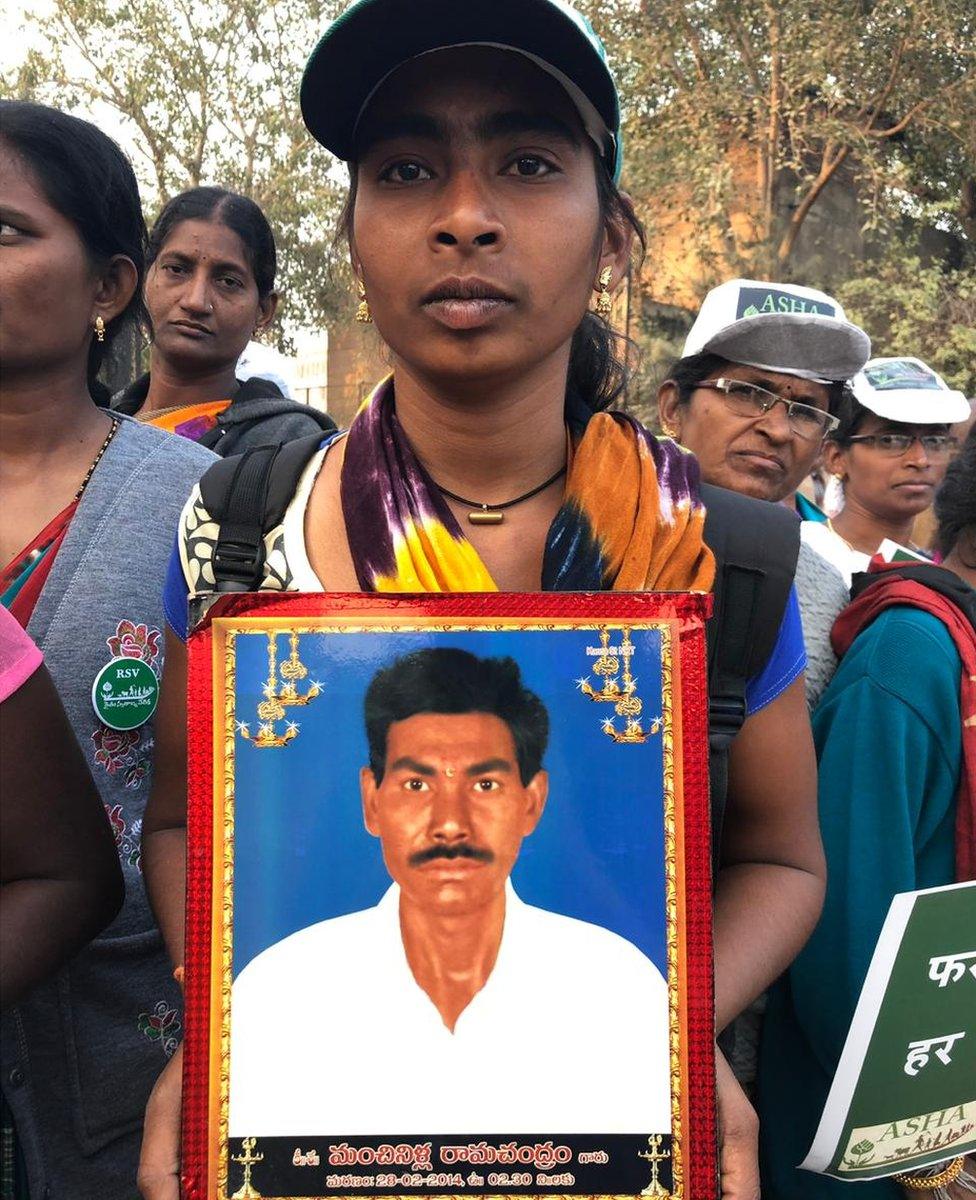
Families of farmers who have killed themselves also participated in the protest
"In Mumbai, we had blisters in our feet [from walking]. They [the government] had promised that they would fulfil our demands in three months, but they never did," she told BBC Marathi.
Several young doctors and medical students have also joined the farmers to show support and to provide them with medical aid, if necessary.
Many others - including lawyers, artists and teachers - are bringing drinking water and food, as well as publicising the protest on social media.
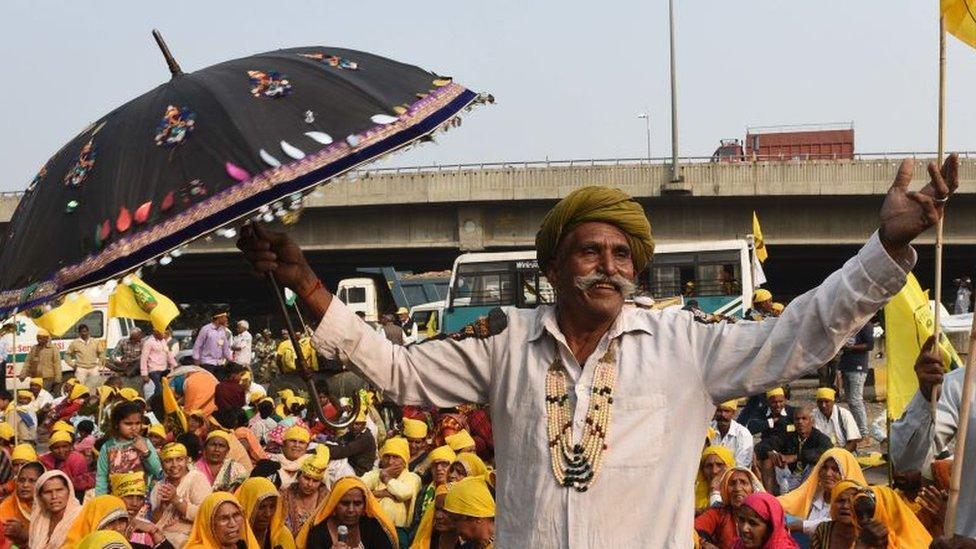
This is the fourth such farmers' protest in the past one year
"Due to social media, there has been an increased awareness about farmers' issues in Delhi," says Monami Basu, a Delhi University professor who is also participating in the march.
"I wanted to be a part of this march to show solidarity with the agitating farmers."
The protest in Delhi is the latest by farmers in recent years. In March, tens of thousands of farmers from the western state of Maharashtra had walked 160km (100 miles) to Mumbai city in support of similar demands.
And last year, drought-hit farmers from the southern state of Tamil Nadu brandished human skulls and held live mice in their mouths to draw attention to their plight.
- Published12 March 2018
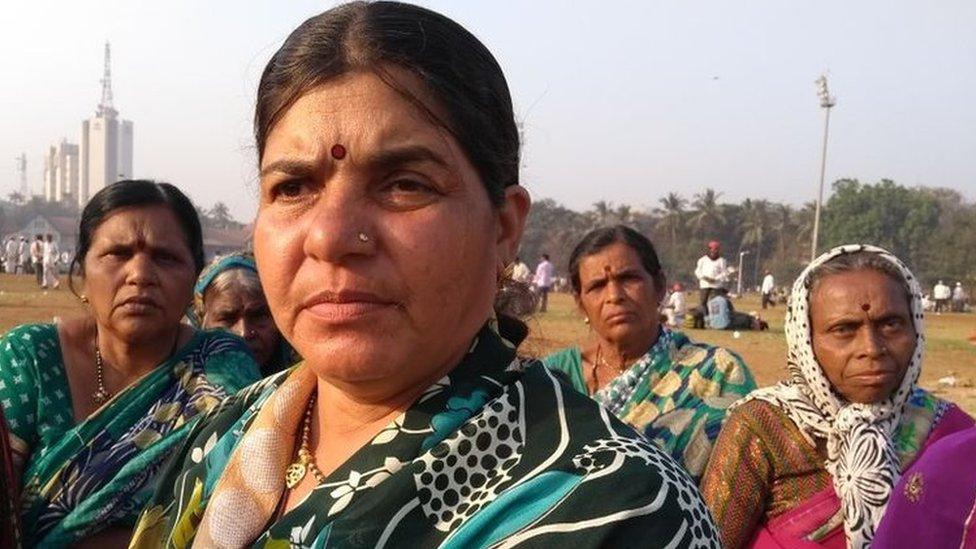
- Published25 May 2018
